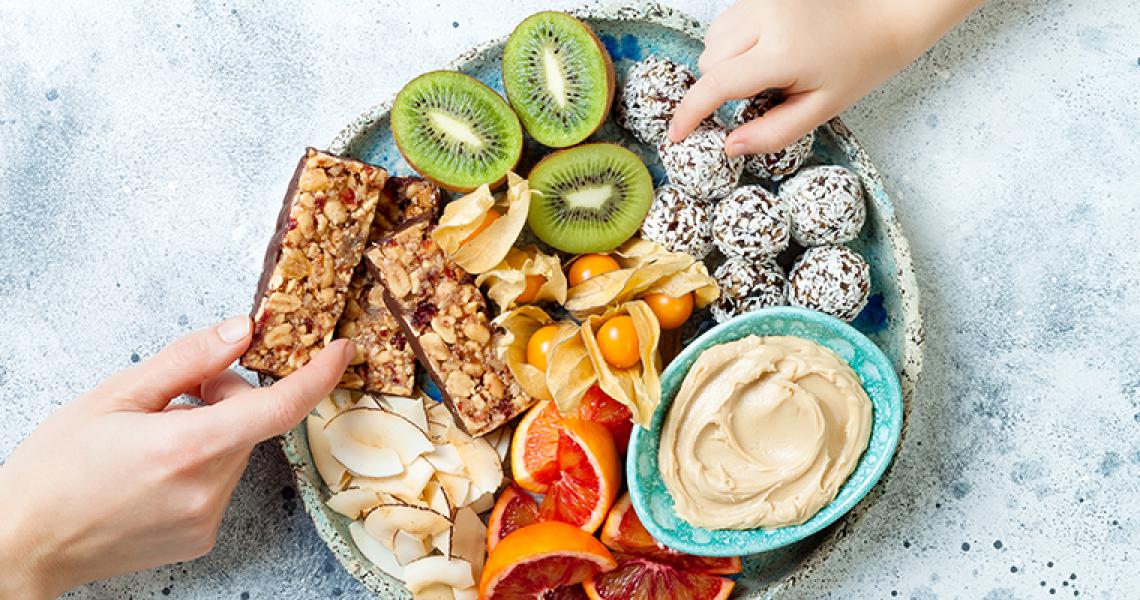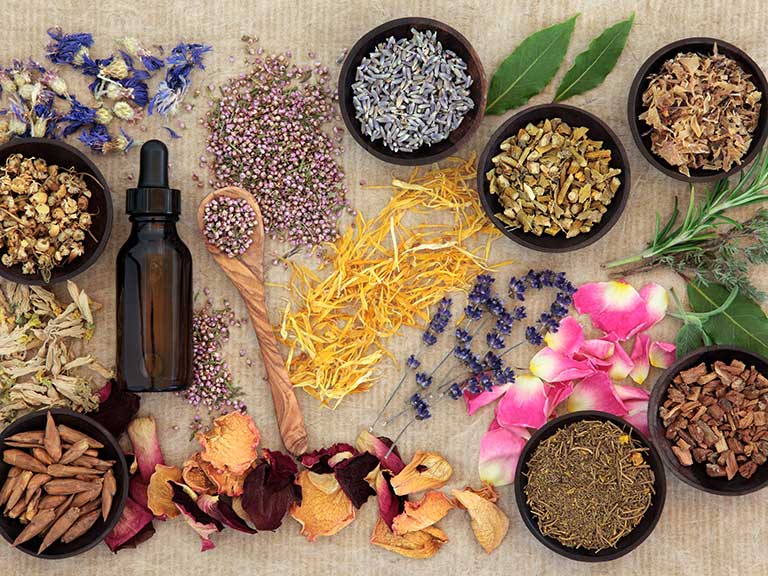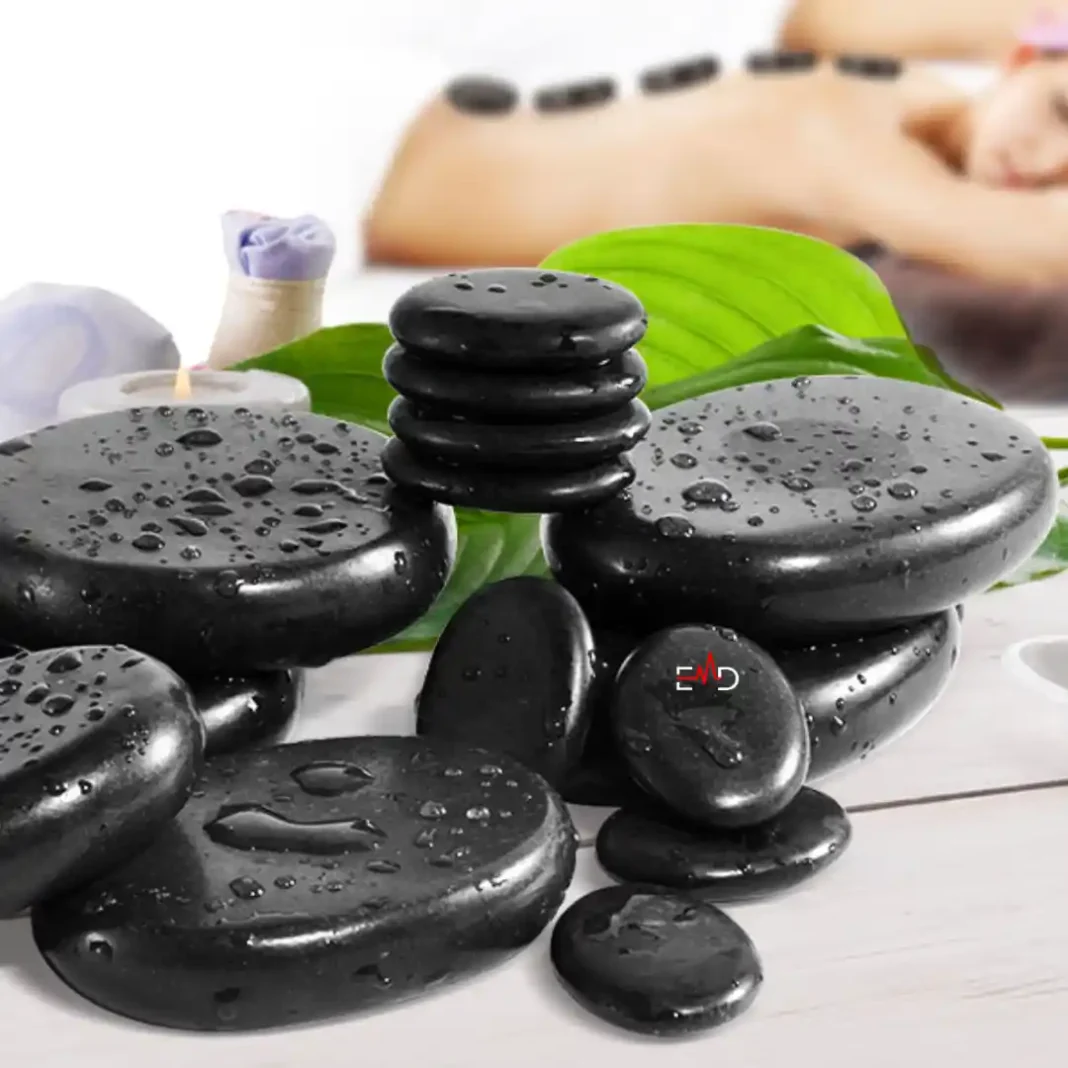Exercise Daily – Stress is an inevitable part of life, whether it’s from work, family, or personal struggles. However, chronic stress can take a significant toll on both your mind and body, leading to a variety of physical and mental health issues. From anxiety and depression to physical conditions like headaches, digestive problems, and even heart disease, the negative impacts of stress are widespread.
When stress becomes overwhelming, many turn to medications or other external solutions for relief. However, there are natural, holistic ways to manage and reduce stress that can also help support your long-term mental health. By incorporating specific foods, daily habits, and natural remedies into your routine, you can help your body fight stress more effectively and restore balance.
In this guide, we will explore some of the best foods, lifestyle strategies, and remedies that can help you lower your stress levels and feel more at ease. Whether you are looking for stress-fighting foods or simple ways to relax, you’ll find the tools you need to manage stress naturally.
Foods to Help Ease Stress and Anxiety
The foods you eat have a direct impact on your mental well-being. When you nourish your body with the right nutrients, you can help regulate your mood, balance stress hormones, and improve your overall mental health. Let’s dive into some of the most effective stress-busting foods.
Omega-3 Fatty Acids: A Powerful Stress-Fighting Nutrient
Omega-3 fatty acids are essential fats that have been shown to play a vital role in reducing symptoms of anxiety, depression, and stress. These fats help lower the levels of cortisol, the stress hormone that can lead to chronic anxiety. Omega-3s are also crucial for supporting brain health, which plays a significant part in mood regulation.
Fatty Fish Like Salmon: The Ultimate Stress-Busting Food
Fatty fish such as salmon, mackerel, sardines, and herring are rich sources of omega-3 fatty acids. Consuming these fish regularly can help keep your stress levels in check and even reduce the risk of developing anxiety disorders. Aim to eat these fish twice a week for maximum benefit. If you’re not a fan of fish, omega-3s are also available in supplement form.
How Omega-3s Help Reduce Anxiety
Omega-3s are crucial for optimal brain function. They help regulate neurotransmitters such as serotonin and dopamine, which are essential for mood regulation. By maintaining stable levels of these neurotransmitters, omega-3 fatty acids can help reduce anxiety, depression, and stress, improving your overall mental health. Research has shown that increasing omega-3 intake can have a noticeable effect on lowering symptoms of anxiety and even protecting the brain from the negative effects of chronic stress.

Probiotic-Rich Foods: Balancing Your Gut for Stress Relief
Did you know that your gut health is directly connected to your mental well-being? The balance of bacteria in your gut—often referred to as the gut microbiome—plays a significant role in regulating mood and managing stress. By improving your gut health with probiotic-rich foods, you can reduce anxiety and support your mental health.
The Connection Between Gut Health and Anxiety
The gut and brain are connected through a pathway known as the “gut-brain axis.” This communication network allows for the exchange of signals between the two, influencing emotions, stress responses, and mental clarity. Research has shown that an imbalance in gut bacteria may lead to increased anxiety, depression, and other mood disorders. On the other hand, a healthy gut microbiome has been linked to better mood regulation, reduced stress, and improved mental health.
Top Probiotic Foods to Include in Your Diet
To improve your gut health and reduce anxiety, include probiotic-rich foods such as:
- Yogurt: A natural source of probiotics that supports gut health.
- Kefir: A fermented dairy drink that is packed with beneficial bacteria.
- Kimchi: A Korean dish made from fermented vegetables that’s rich in probiotics.
- Sauerkraut: Fermented cabbage that aids digestion and boosts gut health.
Incorporating these foods into your diet will help support a healthy gut microbiome, which can, in turn, help reduce stress and improve your mood.
Magnesium: A Natural Stress Reliever
Magnesium is a vital mineral that plays a crucial role in many bodily functions, including stress management. It helps regulate the nervous system, reduces muscle tension, and promotes relaxation. Magnesium deficiencies are commonly linked to higher levels of stress and anxiety, so it’s essential to ensure you’re getting enough through your diet.
Top Magnesium-Rich Foods to Help Calm Your Mind
Some of the best foods for boosting your magnesium intake include:
- Spinach: Rich in magnesium and also a great source of antioxidants.
- Almonds: Packed with magnesium, healthy fats, and vitamin E.
- Pumpkin Seeds: A crunchy snack that’s rich in magnesium and other nutrients.
- Avocados: Contain magnesium, healthy fats, and fiber to help reduce stress.
Adding these foods to your daily meals can help relax your muscles, reduce anxiety, and improve your sleep quality, making it easier to manage stress.
Vitamin C: Fighting Stress with Antioxidants
Vitamin C is a powerful antioxidant that helps protect the body from the damaging effects of stress. It supports the immune system, reduces inflammation, and helps regulate the production of cortisol, the primary stress hormone. Additionally, vitamin C is essential for the production of dopamine, a neurotransmitter that helps improve mood.
Citrus Fruits and Other Vitamin C-Packed Foods
To boost your vitamin C intake, include the following foods in your diet:
- Citrus fruits: Oranges, grapefruits, and lemons are packed with vitamin C.
- Bell Peppers: These colorful veggies are an excellent source of vitamin C.
- Strawberries: Rich in antioxidants and vitamin C, which help reduce inflammation.
- Kiwi: Contains a high amount of vitamin C and fiber, which helps fight stress.
By incorporating these vitamin C-rich foods into your meals, you can support your immune system, fight off the effects of stress, and promote a more positive mood.

Remedies to Combat Stress
1. Mindfulness and Meditation
- Practice Daily Meditation: Dedicate 10-15 minutes each day to focus on your breath and let go of distracting thoughts. Apps like Headspace or Calm can guide beginners.
- Mindfulness Exercises: Engage in activities that promote awareness of the present moment, such as mindful walking or journaling.
2. Physical Activity
- Yoga: Yoga poses like Child’s Pose (Balasana) or Corpse Pose (Shavasana) are excellent for calming the mind.
- Cardio Workouts: A brisk walk or a short run can release endorphins, which are natural mood lifters.
3. Nature Therapy
- Spend time outdoors in green spaces to reduce cortisol levels.
- Engage in activities like gardening, hiking, or simply sitting in a park to reconnect with nature.
4. Aromatherapy
- Use essential oils such as lavender, chamomile, or eucalyptus in diffusers, baths, or massage oils.
- Carry a small roll-on bottle with your favorite calming scent for quick stress relief on the go.
5. Deep Breathing Exercises
- Practice the 4-7-8 breathing technique: Inhale for 4 seconds, hold for 7 seconds, and exhale for 8 seconds.
- Incorporate diaphragmatic breathing to activate the relaxation response.
6. Healthy Lifestyle Habits
- Regular Sleep Schedule: Aim for 7-8 hours of uninterrupted sleep to rejuvenate your body and mind.
- Limit Screen Time: Reduce exposure to screens before bedtime to improve sleep quality.
- Hydration: Drink plenty of water throughout the day to stay energized.
Recipes to Soothe Your Stress
1. Golden Turmeric Latte
Ingredients:
- 1 cup almond milk (or any milk of choice)
- 1 tsp turmeric powder
- ½ tsp cinnamon powder
- ½ tsp ginger powder
- 1 tsp honey or maple syrup
Instructions:
- Heat the milk in a saucepan until warm.
- Whisk in turmeric, cinnamon, and ginger.
- Sweeten with honey or maple syrup. Enjoy it warm for a comforting drink.
2. Chamomile Lavender Tea
Ingredients:
- 1 tsp dried chamomile flowers
- ½ tsp dried lavender flowers
- 1 cup boiling water
- Honey (optional)
Instructions:
- Combine chamomile and lavender in a tea infuser or teapot.
- Pour boiling water over the mixture and steep for 5-7 minutes.
- Sweeten with honey if desired.
3. Stress-Relief Smoothie
Ingredients:
- 1 banana
- ½ cup spinach
- 1 tbsp almond butter
- 1 cup almond milk
- 1 tsp chia seeds
- ½ tsp cinnamon
Instructions:
- Blend all ingredients until smooth.
- Serve chilled and enjoy as a mid-day stress buster.
4. Dark Chocolate Energy Bites
Ingredients:
- 1 cup oats
- ½ cup dark chocolate chips
- ¼ cup honey
- ½ cup almond or peanut butter
- 1 tbsp flaxseeds
Instructions:
- Mix all ingredients in a bowl until well combined.
- Roll into small balls and refrigerate for 30 minutes.
- Store in an airtight container for quick stress-relief snacks.
5. Lavender-Infused Bath Salts
Ingredients:
- 1 cup Epsom salt
- 10 drops lavender essential oil
- 1 tbsp baking soda
Instructions:
- Mix all ingredients in a jar.
- Add ½ cup of the mixture to a warm bath.
- Soak for 20 minutes to relax muscles and ease tension.

Stress Management: Lifestyle Tips and Strategies
While eating the right foods is important for managing stress, it’s equally crucial to adopt healthy lifestyle habits. By incorporating simple yet effective stress management strategies into your routine, you can further reduce anxiety and maintain balance.
The Role of Exercise in Reducing Stress
Exercise is one of the most powerful tools for combating stress. Physical activity triggers the release of endorphins, the “feel-good” hormones that promote happiness and relaxation. Whether it’s a brisk walk in the park, a yoga session, or a vigorous workout, exercise helps lower cortisol levels and reduces the negative effects of stress.
How Exercise Helps Reduce Anxiety
Regular physical activity helps increase the production of endorphins, which are natural mood elevators. Exercise also helps regulate the body’s stress response by reducing the levels of cortisol and increasing the release of serotonin, a neurotransmitter that helps improve mood and reduce anxiety. Consistent exercise can not only alleviate the immediate symptoms of stress but also promote long-term mental well-being.
Mindfulness and Meditation: Proven Stress Relievers
Mindfulness and meditation are two practices that have been shown to significantly reduce stress. These techniques help you focus on the present moment, calm your mind, and manage racing thoughts. By incorporating just a few minutes of mindfulness or meditation into your daily routine, you can create a peaceful mindset and reduce the effects of stress.
The Benefits of Mindfulness and Meditation
Mindfulness involves being present and fully engaged in whatever you are doing without judgment. Meditation, on the other hand, is a structured practice that involves focusing on your breath or a specific thought or mantra. Both practices have been scientifically proven to:
- Reduce cortisol levels
- Improve emotional regulation
- Enhance overall well-being
- Lower anxiety and depression
Herbal Remedies and Essential Oils for Stress Relief
In addition to dietary changes and lifestyle practices, herbal remedies and essential oils can be powerful allies in your fight against stress. These natural solutions have been used for centuries to promote relaxation and alleviate anxiety.
Lavender, Chamomile, and Other Herbal Solutions
Herbal teas and extracts like lavender, chamomile, and lemon balm are well-known for their calming properties. Drinking a warm cup of chamomile or lavender tea before bed can help promote relaxation and improve sleep quality. You can also use these herbs in essential oil form for aromatherapy.
- Lavender: Known for its relaxing and stress-reducing effects. It helps lower heart rate and calm the nervous system.
- Chamomile: Often used to promote sleep and reduce anxiety.
- Lemon Balm: Helps to alleviate stress and promote a sense of calm.
How Essential Oils Work to Calm Anxiety
Essential oils can be used in various ways, including through aromatherapy, topical application, or even in baths. Oils like lavender, eucalyptus, and peppermint are particularly effective for stress relief. They help reduce cortisol levels, improve mood, and promote a sense of calm. Using an essential oil diffuser or adding a few drops to your pillow at night can help you unwind and ease anxiety.

Conclusion
Managing stress is essential for maintaining both physical and mental health. By incorporating the right foods, adopting healthy lifestyle habits, and using natural remedies, you can effectively reduce stress and improve your overall well-being. Omega-3-rich fish, magnesium-rich foods, and probiotics can help balance your body’s stress response and improve mood, while vitamin C-packed foods boost your immune system and combat the harmful effects of stress. Regular exercise, mindfulness practices, and herbal remedies further support your stress management efforts.
FAQs – Stress Busters Remedies and Recipes to Calm Your Mind and Body
Q: How quickly can stress-fighting foods help reduce stress?
A: The impact of stress-fighting foods may take time, but with consistent consumption, you should begin to feel improvements in your stress levels and overall mood. It’s important to incorporate these foods into your daily diet and pair them with other stress-reducing practices for maximum benefit.
Q: Can exercise alone reduce anxiety and stress?
A: While exercise is incredibly effective at reducing anxiety and stress, combining physical activity with other strategies like a balanced diet, mindfulness, and quality sleep is more effective for long-term stress management. Exercise alone may help in the short-term, but a holistic approach provides greater benefits.
Q: Are there any side effects of using essential oils for stress relief?
A: Essential oils are generally safe when used properly, but some individuals may experience allergic reactions or sensitivities. Always perform a patch test before using essential oils on your skin, and consult a healthcare professional if you have concerns. Diffusing oils is a safe alternative for most people.
Q: Which probiotic foods are best for easing anxiety?
A: Some of the best probiotic-rich foods for easing anxiety include yogurt, kefir, sauerkraut, kimchi, and pickles. These fermented foods help balance your gut microbiome, which can support mental health and reduce stress levels.
Q: Can stress management techniques help prevent future anxiety?
A: Yes! Regular practice of stress management techniques—such as exercise, meditation, and proper nutrition—can significantly reduce the risk of developing anxiety in the future. These strategies promote emotional regulation, support brain health, and make it easier to cope with stress when it arises.




